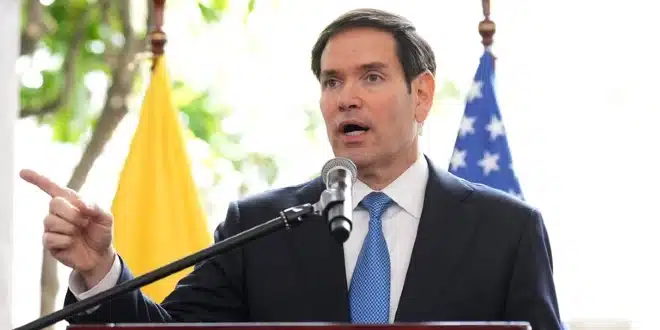U.S. Secretary of State Marco Rubio is scheduled to meet with Qatar’s Prime Minister Sheikh Mohammed bin Abdulrahman Al Thani at the White House on Friday, according to the State Department. The meeting comes just days after an Israeli strike targeted Hamas leadership in Qatar, a move that has rattled regional diplomacy and strained Washington’s relationships in the Middle East.
Israeli Strike Raises Diplomatic Tensions
On Tuesday, Israel launched airstrikes in Doha, hitting Hamas figures based in Qatar. For years, the Gulf state has played a pivotal role as a mediator in negotiations aimed at ending the Gaza war, which has now dragged on for nearly two years. Qatar also hosts Al Udeid Air Base, the largest U.S. military facility in the region, making it a critical American partner.
The attack has sparked alarm among diplomats, not only because of its geopolitical implications but also because it risks undermining ongoing talks to secure a ceasefire and the release of Israeli hostages still held in Gaza.
Trump Administration’s Response
President Donald Trump sought to distance his administration from the strike, stressing that the U.S. had attempted to dissuade Israel but learned of the operation too late. His remarks reflect the delicate balancing act Washington faces: maintaining its alliance with Israel while preserving crucial partnerships with Gulf states like Qatar.
Rubio, who also serves as Trump’s national security advisor, is expected to discuss both the immediate fallout from the strike and Qatar’s continued role in mediation efforts during his talks with Al Thani.
Qatar’s Reaction
Prime Minister Al Thani strongly condemned Israel’s actions, arguing that the strike destroyed fragile momentum toward a ceasefire. He warned that “Israel is killing hopes for a deal that could free hostages held by Hamas.” Despite his criticism, Al Thani reiterated that Qatar remains committed to facilitating dialogue, signaling Doha’s intent to maintain its position as a central broker in the conflict.
What This Means Going Forward
The meeting between Rubio and Al Thani underscores the growing urgency for Washington to reassure its partners in the Gulf while keeping diplomatic channels open. Israel’s decision to strike Hamas leaders in a U.S.-aligned country has introduced a new layer of complexity into already fraught negotiations.
Whether this episode pushes Qatar closer to disengagement or strengthens its resolve to mediate will be a key question in the coming weeks. For the United States, the challenge lies in showing it can manage its relationships with both Israel and Gulf allies without jeopardizing its long-term role as a stabilizing power in the region.


